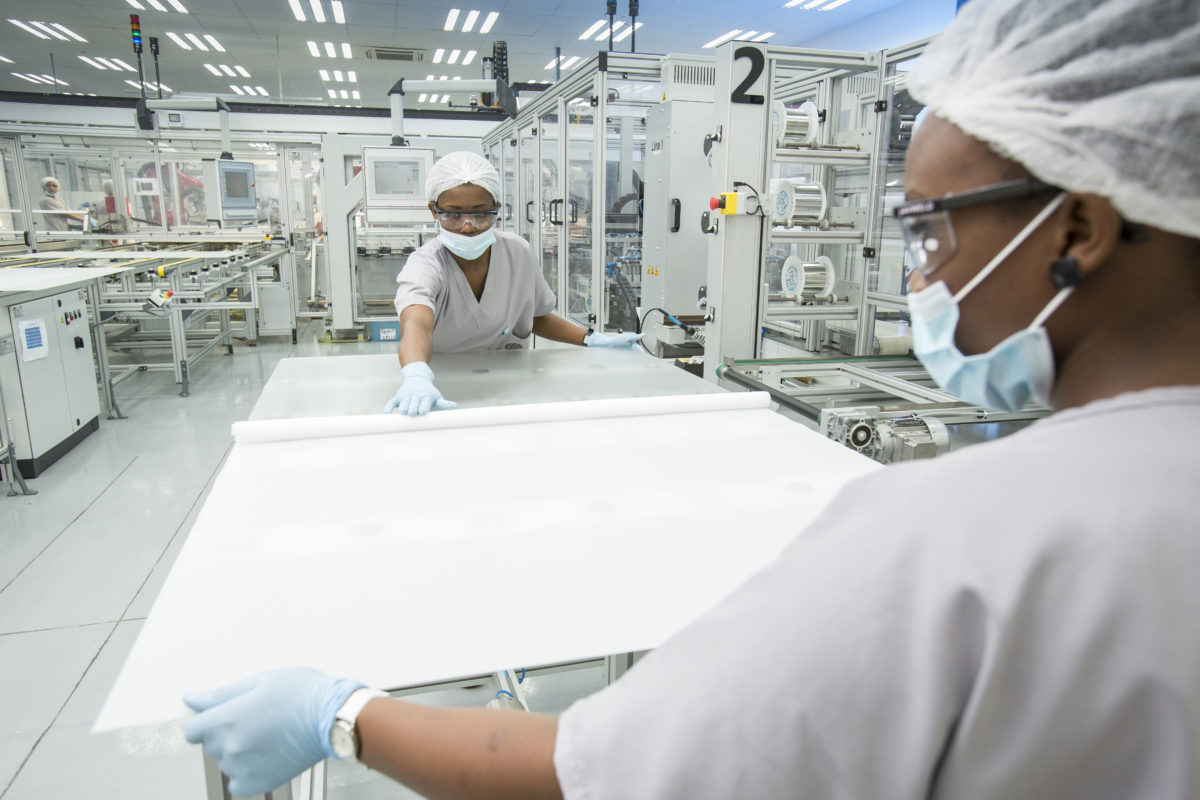This is an ongoing story jointly published by pv magazine and Green Building Africa.
Claims of widespread backsheet failure at the Mulilo Sonnedix Prieska solar project in South Africa emerged late last year and parties involved in the project have been reticent to provide details about what has occurred. It is understood modules will need replacing at the 75 MW site.
The modules used in the project were supplied by Chinese manufacturer BYD and South African producer Artsolar.
“To date, we have never replaced a single panel, be it for the REIPPP [South African renewables public capacity tendering regime the Renewable Energy Independent Power Producer Program] or any private project,” said Divian Govendar, CEO of Johannesburg-based Artsolar. “We run an AI [artificial intelligence] system that is able to track every single serial number and the related process of every single panel that ever left our factory. It is this process that brought the importing of panels by BYD to all parties’ attention.”
Backsheet problems
Govendar said Artsolar produced 100,000 of the 300,000 modules used on the project and BYD supplied the remainder. The South African company’s CEO said Artsolar had not been informed by BYD or the South African unit of German engineering, procurement and construction services provider Juwi about backsheet problems.
However, Artsolar is aware of backsheet problems at the project. “Our plant and process has always been to reject cells and other raw materials based on our own quality criteria,” Govendar said. “Similarly, we rejected laminates based on the corresponding criteria. We cannot comment on whether these same criteria are followed by foreign manufacturers.”
The Artsolar chief said South Africa had a tendency to receive low-quality “dumped” solar products and added, a common business model in the nation – and elsewhere – of “flipping” ownership of projects a handful of years after completion could also prove problematic. “This is something that we have been speaking about for years,” said Govendar. “The developers often sell the projects in [their] entirety to investors once the project [has been] “stable” for three to four years. Govendar said that is the point at which quality issues can become prevalent.
Not one panel replaced
Popular content
The chief executive added: “It is a widely known fact that the module price in South Africa is amongst the cheapest in the world – after all, there has to be a final destination for other-grade modules, right?”
The company boss reiterated his claim not a single Artsolar panel had been replaced at Mulilo Sonnedix Prieska. “We can trace every single panel using its serial number, that is contained in more than one location,” said Govendar. “If panels were ever replaced, it was never done by us. BYD imported panels directly from China via Cape Town port.” The Artsolar chief added, “many issues” could not be discussed further as they were confidential.
Quality assurance
“We are a TUV and SABS-certified facility and hold ISO 14001 environment certifications,” Govendar said, setting out his company’s quality credentials. “I can confirm that all materials were TUV-certified and complied with the production standards, as approved by BYD.”
Factory audits also formed part of the module supply process for Mulilo Sonnedix Prieska. Artsolar reported its facility was independently audited and said independent German quality assurance engineer VDE Renewables and Juwi conducted a “continuous quality verification process … All of this is the exact reason why we advocate local production so strongly.”
By Jonathan Gifford and Bryan Groenendaal
This article was amended on 25/02/20 to reflect Artsolar supplied 100,000 of the 300,000 modules used at the site rather than 10,000 of 30,000, as previously stated.
This content is protected by copyright and may not be reused. If you want to cooperate with us and would like to reuse some of our content, please contact: editors@pv-magazine.com.


1 comment
By submitting this form you agree to pv magazine using your data for the purposes of publishing your comment.
Your personal data will only be disclosed or otherwise transmitted to third parties for the purposes of spam filtering or if this is necessary for technical maintenance of the website. Any other transfer to third parties will not take place unless this is justified on the basis of applicable data protection regulations or if pv magazine is legally obliged to do so.
You may revoke this consent at any time with effect for the future, in which case your personal data will be deleted immediately. Otherwise, your data will be deleted if pv magazine has processed your request or the purpose of data storage is fulfilled.
Further information on data privacy can be found in our Data Protection Policy.